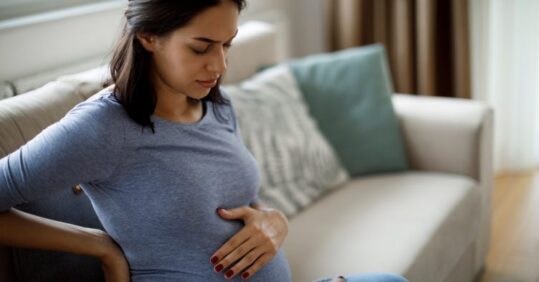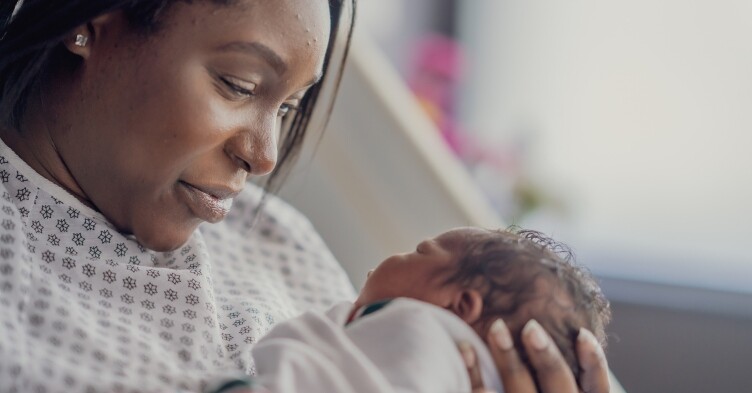Stress in pregnancy can shape baby brain development, study finds

Stress in pregnant women can impact areas of the infant brain related to emotional development, a study has found.
Researchers led by the University of Edinburgh showed levels of cortisol – a hormone involved in stress – are linked to the development of the baby’s amygdala, an area of the brain involved in emotional and social development in childhood.
Experts have now warned that women need to be better supported with their mental and physical health before and during pregnancy, and that struggling pregnant women should seek help, following the study’s findings.
Related Article: Postnatal contraception advice reduces the risk of back-to-back pregnancies
Lead researcher Professor James Boardman at the University of Edinburgh said: ‘Our findings are a call to action to detect and support pregnant women who need extra help during pregnancy as this could be an effective way of promoting healthy brain development in their babies.’
Scientists took hair samples from 78 pregnant women to determine the women’s levels of cortisol in the previous three months, and their babies underwent a series of MRI brain scans.
They found that higher levels of cortisol in the mother’s hair were linked to structural changes in the infants’ amygdala as well as differences in brain connections.
Maternal stress is already known to influence the development of the child’s behaviour and emotion regulation, but this is usually measured by questionnaires.
This study is the first time that scientists have used an objective measure – levels of the hormone cortisol – in the mother to study links with baby brain development.
Related Article: Food insecurity and obesity: a North-South divide
It could also explain why children whose mothers experienced high levels of stress during pregnancy may be more likely to have emotional issues in later life.
But the researchers cautioned that the study did not assess emotion in children.
Professor Rebecca Reynolds at the University of Edinburgh, who co-led the study, said the findings ‘could guide therapies in future to help spot those who might be most in need of support’.
Chair of children’s charity Theirworld, which funded the study, said the research ‘highlights how important it is to support women’s mental health during pregnancy’.
Related Article: Over one million children living in homes causing asthma and chronic illness
‘Helping mothers cope with stress is an important step to ensure both mum and baby thrive,’ she added.
Earlier this year, research found that women who have had a miscarriage or ectopic pregnancy frequently experience post-traumatic stress as well as depression and anxiety.

See how our symptom tool can help you make better sense of patient presentations
Click here to search a symptom




